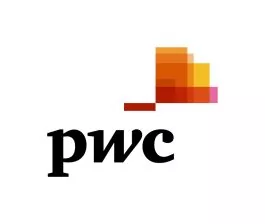![]()
Have you spoken with your CIO about your company's cloud computing strategy?
Chances are your CIO is developing one, and its effects will be felt companywide. Cloud computing can reduce IT and business costs, and it is fast becoming a powerful means for growth. As CFO, you should understand how a cloud strategy can influence your organization's cost structure and financial strategy—or risk forfeiting a competitive advantage.
There is a chance you won't be included in early discussions with your CIO because some IT executives underestimate the game-changing nature of cloud. In fact, some eschew cloud computing in part because its efficiencies can reduce demand for IT staff. But momentum is building for cloud, and if you are not a user today, you likely will be within a few years.
A rudimentary understanding of cloud computing dissuades many CFOs from initiating the cloud conversation. Don't let that stop you. It would be wise to educate yourself on the service models, cost structures, and governance issues. Then use these questions to engage your CIO.
Five questions to ask your CIO
- How do the organization's short- and long-term cloud computing strategies reduce IT and business costs while helping drive new opportunities?
- How does the cost structure of our IT compare with that of public clouds? Have you analyzed the two approaches?
- How is our security group approaching the use of both private and public cloud models?
- If we have started implementing cloud, what are the detailed plans for migration and implementation? Is internal audit involved?
- What is the strategy to prevent proliferation of shadow IT among business units? How are we monitoring acquisition of technology?
New frontiers for risk and governance
When parsing the answers to these questions, CFOs must consider the risks and rewards of strategies identified by the CIO and other business leaders.
A cloud-focused CFO will take a lead in creating a flexible—and adaptable— framework to manage emerging governance and compliance issues. CFOs also must evaluate risks and vet the viability of providers.
The CFO must be prepared to assess a cloud provider's ability to safeguard data residing in its systems and vouch for the security of any data that is regulated for privacy and compliance. If IT reports into the finance function, CFOs may need to vet the financial strength of the provider and help ensure that it meets performance and stability requirements. And once a cloud implementation is in place, a CFO must monitor costs to manage accurate billing and reevaluate the economics. If it becomes necessary to seek another provider, the CFO should oversee an exit strategy.
How the cloud impacts finance
Users of cloud services typically see lower capital expenditures. This shift varies by industry and whether the cloud is public or private. CFOs may need to adjust capital spending to factor in new variable costs such as total contract value or stream of payments.
As a user of cloud services, the CFO must be able to model new impacts on revenue, profits, and operating margins, as well as the risks of exposing services in the cloud.
Cloud computing will impact finance's processes for investing in, monitoring, and depreciating IT assets. Providing or using cloud services also will impact sales and use tax obligations.
Evaluating cloud standards
As cloud computing evolves, regulators and standards organizations are developing criteria to evaluate risks associated with public cloud computing. CFOs must be mindful of these risks and be prepared to include contract provisions allowing third-party audits, independent SLA monitoring, audit rights over variable pricing, and SAS 70-type independent audits. While SAS 70 audits do not address risks associated with cloud computing, alternative reports are becoming more commercially acceptable to assess cloud-related risks and controls.
The content of this article is intended to provide a general guide to the subject matter. Specialist advice should be sought about your specific circumstances.

